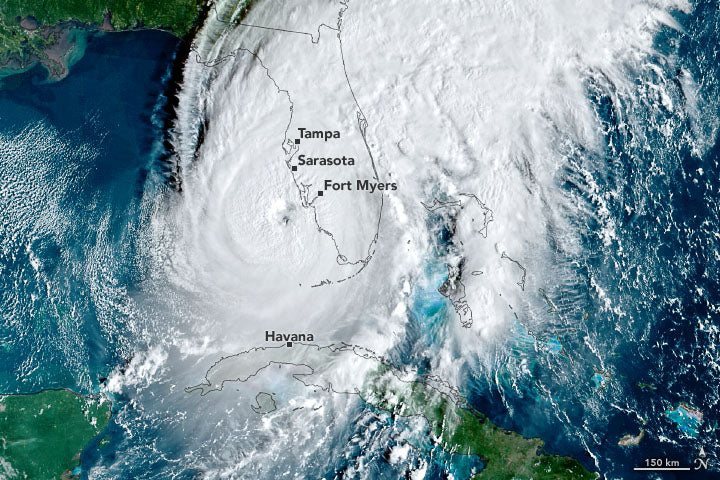
Florida Hurricane Preparedness 101
Florida Hurricane Preparedness 101: What You Need to Know
Living in Florida comes with many perks—sunshine, beautiful beaches, and a vibrant lifestyle. However, it also means facing the reality of hurricane season. Preparing for a hurricane is essential to ensure the safety of you, your family, and your property. Here’s a comprehensive guide to help you get ready for the storm.
Understanding Hurricane Season
Hurricane season in Florida runs from June 1st to November 30th. The peak period, when hurricanes are most likely to occur, is from mid-August to late October. Understanding this timeline helps in planning and staying alert during these critical months.
1. Stay Informed
Staying informed is the first step in hurricane preparedness. Reliable sources of information include:
- National Hurricane Center (NHC): Provides updates on storm paths, intensity, and potential impacts.
- Local News Outlets: Offer real-time information and updates specific to your area.
- Weather Apps: Apps like NOAA Weather Radar and The Weather Channel provide alerts and updates.
Sign up for local emergency alerts to receive notifications about severe weather conditions and evacuation orders.
2. Create an Emergency Plan
Having a solid emergency plan can save lives. Here’s what you need to include:
- Evacuation Routes: Identify the nearest evacuation routes and shelters. Plan multiple routes in case your primary route is impassable.
- Communication Plan: Ensure all family members know how to reach each other. Designate an out-of-state contact who can relay information.
- Meeting Points: Establish safe meeting points both inside and outside your immediate neighborhood.
3. Assemble an Emergency Kit
Your emergency kit should be stocked and ready before the hurricane season begins. Essential items include:
- Water: At least one gallon per person per day for at least three days.
- Non-perishable Food: A three-day supply of canned goods and dry foods.
- Medication: A week’s supply of prescription and over-the-counter medications.
- First Aid Kit: Include bandages, antiseptic wipes, and other basic medical supplies.
- Flashlights and Batteries: Ensure you have plenty of batteries and alternative light sources.
- Important Documents: Keep copies of insurance papers, identification, and other crucial documents in a waterproof container.
- Personal Hygiene Items: Sanitary wipes, hand sanitizer, and other hygiene products.
- Tools and Supplies: A multi-tool, duct tape, and other necessary tools for basic repairs.
4. Prepare Your Home
Securing your home is critical to minimize damage. Steps include:
- Shutter Windows: Install storm shutters or board up windows with plywood.
- Secure Outdoor Items: Bring in patio furniture, garbage cans, and other items that can become projectiles in high winds.
- Reinforce Doors and Garage: Use braces or additional locks to strengthen entry points.
- Trim Trees: Cut back any branches that could fall and cause damage.
5. Know Your Insurance Policy
Review your homeowner’s insurance policy to ensure you’re covered for hurricane damage. Consider adding flood insurance, as standard policies typically don’t cover flooding.
6. Plan for Your Pets
Don’t forget your furry friends. Make sure you have:
- Pet Food and Water: A three-day supply for each pet.
- Medications and Medical Records: Keep these handy in case you need to stay in a pet-friendly shelter.
- Crate or Carrier: For safe transport and shelter.
7. Stay Safe During the Storm
If you’re not evacuating, follow these safety tips:
- Stay Indoors: Keep away from windows and doors.
- Use a Battery-powered Radio: Stay updated on the storm’s progress.
- Avoid Floodwaters: Do not attempt to walk, swim, or drive through flooded areas.
8. After the Storm
Once the hurricane passes, continue to stay safe:
- Wait for Official Word: Don’t assume it’s safe to go outside until authorities declare it so.
- Inspect Your Home: Check for damage and document it for insurance purposes.
- Avoid Downed Power Lines: Treat all downed lines as live and dangerous.
- Boil Water: Until the authorities confirm the water supply is safe, boil water to avoid contamination.
Final Thoughts
Preparation is your best defense against hurricanes. By staying informed, having a plan, and assembling the necessary supplies, you can significantly reduce the risks and impact of these powerful storms. Remember, it's not just about surviving the storm but being able to recover and get back to normal life as quickly as possible.
Stay safe, Florida!

Leave a comment